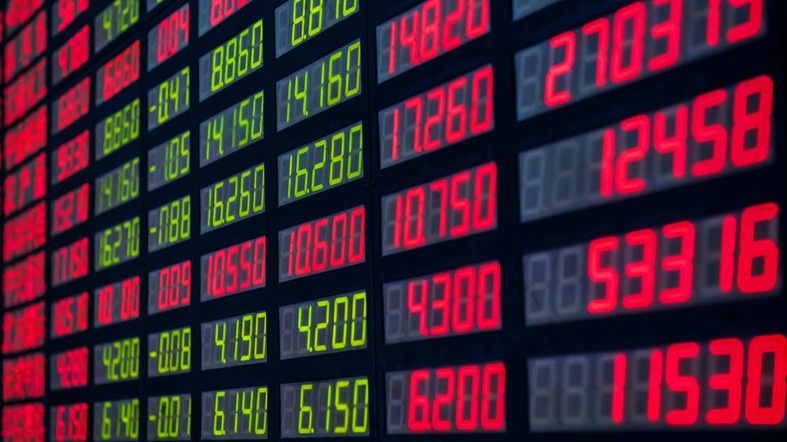- Market Sheds N44bn as 21 Stocks Depreciate
The equities market, on Tuesday, lost N44bn following depreciation in 21 stocks at the close of trading on the floor of the Nigerian Stock Exchange.
The NSE market capitalisation dropped to N8.901tn from N8.945tn, while the All-Share Index declined to 25,857.06 basis points from 25,986.81 basis points.
A total of 189.725 million shares worth N905.102m were traded in 2,417 deals.
The NSE ASI, therefore, maintained its losing streak, paring by 0.50 per cent to settle the year-to-date return at -9.72 per cent. The volume of transactions advanced by 17.91 per cent while market turnover declined by 18.90 per cent relative to the previous day’s trading.
With 95 million shares traded, Standard Alliance Insurance Plc emerged as the most actively traded stock in the market. Nine stocks appreciated in value while 21 declined at the end of the day’s trading activities, indicating a negative market stance.
The highest gaining counters for Tuesday were Custodian and Allied Plc, Airline Services and Logistics Plc, Nigerian Aviation Handling Company Plc, Nascon Allied Industries Plc and Guaranty Trust Bank Plc, which appreciated by 4.96 per cent, 4.93 per cent, 4.89 per cent, 4.87 per cent and 4.29 per cent, respectively.
On the other hand, Lafarge Africa Plc, Conoil Plc, Oando Plc, Transnational Corporation of Nigeria Plc and International Breweries Plc emerged as the highest losers, declining by 8.33 per cent, 4.99 per cent, 4.89 per cent, 4.82 per cent and 4.47 per cent, respectively.
Market performance, as measured by the NSE indices, reflected the generally negative sentiments in the market, as the industrial sector declined by 4.09 per cent; the insurance sector dropped by 1.05 per cent; and the oil and gas sector also depreciated by 0.39 per cent.
Commenting on the performance, analysts at Meristem Securities Limited, in the firm’s daily market report, said, “In spite of the price recovery witnessed by some large-cap tickers, the equities market was awash with weak sentiments which were further pressed by the price depreciation on Dangote Cement Plc.
“We expect the rest of the week to be swayed by mixed investor sentiment, possibly skewed more towards bargain-hunting.”
Meanwhile, there was an uptick in activities in the bond space, as average bond yield declined marginally by 0.03 per cent to close at 16.43 per cent at the close of the day’s trading.
Significant demand was witnessed at the shorter end of the curve, as yields declined across these instruments. The Debt Management Office will be conducting a bond auction on November 16, 2016, through the reopening of the July 2021, January 2026, and March 2036 instruments.
Average money market rate advanced by 0.75 per cent to settle at 26.38 per cent at the close of trading on Tuesday, as the open-buy-back and overnight rates advanced by 0.33 per cent and 1.17 per cent, respectively
The naira traded flat against the United States dollar at both the interbank and parallel market to close at N305.25/dollar, and N455/dollar, respectively.
As earlier anticipated, demand weakened further in the Treasury bills space as average T-bills yield advanced by 0.81 per cent to close at 19.12 per cent. The Meristem analysts said, “We attribute this decline in activities to investors shift towards the coming primary auction.
“The Central Bank of Nigeria is expected to hold a Primary Market Auction on November 16, 2016. T-bills worth N119.46bn will be sold in 91, 182, and 364 days instruments.”

 Naira4 weeks ago
Naira4 weeks ago
 Naira4 weeks ago
Naira4 weeks ago
 Travel3 weeks ago
Travel3 weeks ago
 Jobs4 weeks ago
Jobs4 weeks ago
 Naira3 weeks ago
Naira3 weeks ago
 Naira3 weeks ago
Naira3 weeks ago
 Investment4 weeks ago
Investment4 weeks ago
 Travel4 weeks ago
Travel4 weeks ago




























